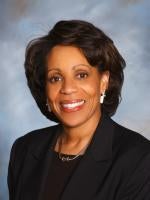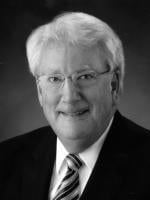To borrow and edit a page from Benjamin Franklin, when it comes to equipping lawyers for 21st century practice, legal educators from law school leaders to bar examiners to CLE sponsors to MCLE regulators will either succeed together or fail separately.
We, as active participants in the recent Critical Issues "Equipping Our Lawyers" Summit, vote for succeeding together! The stakes for the public and the profession are far too high to consider any other outcome. But to achieve that success, we all need to talk to each other, to understand each others' best ideas, to try those ideas and many more, and to support each others' efforts as never before.
The challenges to equipping our lawyers have only heightened in recent years: unprecedented competition among lawyers and between lawyers and other professionals; rising legal education costs and shrinking legal practice profitability; a splintering of legal fields into tiny worlds of arcane learning; and a furious pace of legal change, fueled in part by technological advances and more diverse outlooks among law students and lawyers than we have ever experienced. If those were not enough challenges to cope with, we are in the midst of a deep and prolonged economic downturn with little prospect of a return to business as usual anytime soon.
How can all of us involved in educating lawyers work together to equip them for these 21st century realities?
What Summit?
Last October ALI-ABA Continuing Professional Education and the Association for Continuing Legal Education (ACLEA) responded to this challenge by jointly sponsoring a three-day summit. Equipping Our Lawyers:
Law School Education, Continuing Legal Education, and Legal Practice in the 21st Century, brought together 150 invitees from North American law schools, bar associations and law societies, CLE organizations, MCLE authorities, in-house professional development, and the judiciary to discuss how best to work together to train lawyers for the future. Out of the summit came 16 recommendations that we think can form the basis for fruitful conversations and innovative actions to better serve the public and the bar. (For the full recommendations, see the Summit Final Report at www.equippingourlawyers.org.)
Here's our brief take on the recommendations, where we might go from here, and why the journey is vital.
Summit conferees reaffirmed the key concept of a "continuum" of legal education for lawyers beginning in law school and proceeding throughout legal careers. And they reaffirmed the idea that many players, including law schools, the organized bar, CLE sponsors, MCLE regulators, and in-house professional development, have key roles to play in the continuum.
What was a new emphasis in the Recommendations was that each key player's efforts should reflect greater communication and collaboration with all of the others, to better serve the real needs of lawyers and the public from beginning to end in the continuum.
For example, the conferees made the following recommendations:
- Law schools should focus their curricula on learning outcomes (Recommendation 1)
- The bar, the bench, and the law schools should partner to insure core practice competencies are integrated into learning outcomes, and that transitional education, which could include supervised apprenticeships and universal mentoring, becomes a reality for all graduates (Recommendations 2 and 4)
- Regulatory authorities should consider restructuring the one-time bar examination model into phased examinations over time, with such examinations beginning as early as law school (Recommendation 5)
- MCLE regulators, CLE providers, and the practicing bar should develop appropriate accreditation standards for distance learning CLE programs (Recommendation 7)
- All constituencies involved in the training of lawyers need to work together to develop programs to prepare law students to serve the underserved (Recommendation 16)
What Now?
Clearly the Summit conferees had no standing to tell law schools, bar associations, regulators, CLE organizations, law firms, or courts what they should do. But the conferees did focus considerable cross-profession effort on analyzing the current state of career-long lawyer education and on suggesting new approaches that all constituent groups might consider and test. And through their recommendations, they are urging all such groups to consider using their diverse situations, experiences, and strengths to try specific new approaches to lawyer preparation. For their parts, ALI-ABA and ACLEA as the sponsoring organizations have pledged to identify and highlight efforts by the leaders in legal education to find better ways to train lawyers, and to assist in any way they can to encourage implementation of the recommendations.
That different bar associations, different state supreme courts, or different law schools may take different paths in how they implement the recommendations is, to us, a good thing. We all have much to learn by different approaches, and the wants, needs, and resources differ widely from state to state, institution to institution.
The key point, in our view, is for all of us to open conversations on new and better ways to equip our lawyers, and to actually create and try the new approaches suggested by the recommendations from this important Summit.




 />i
/>i

